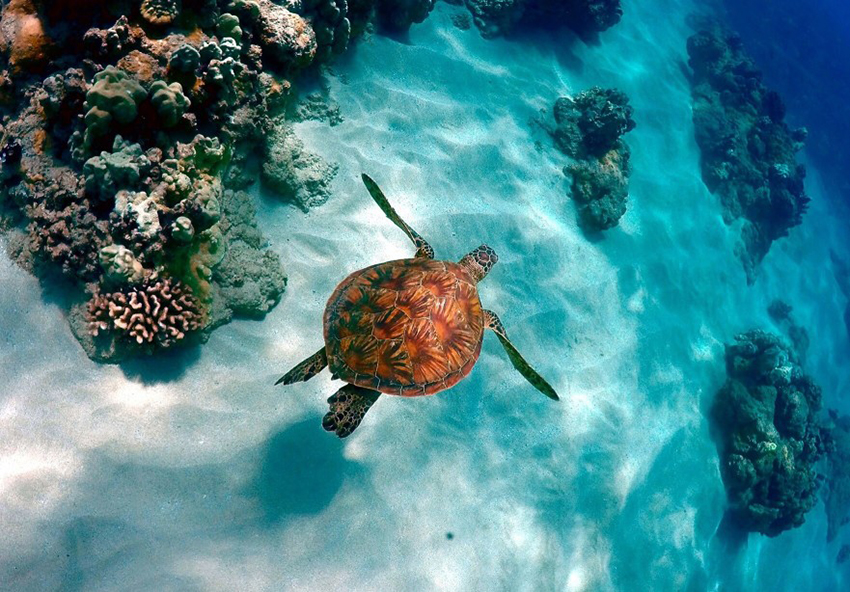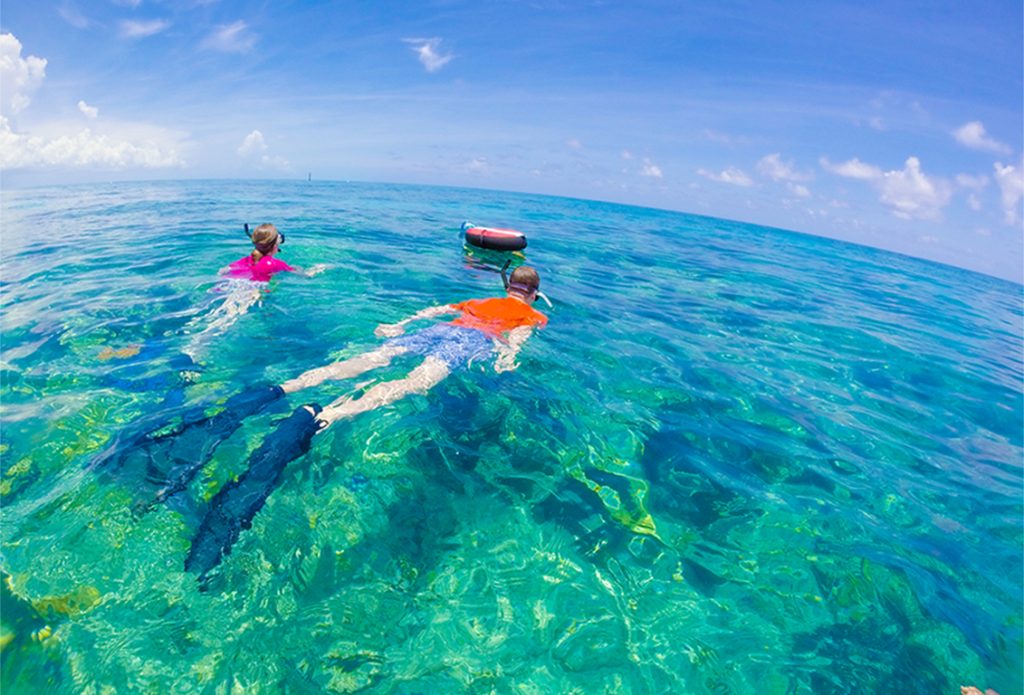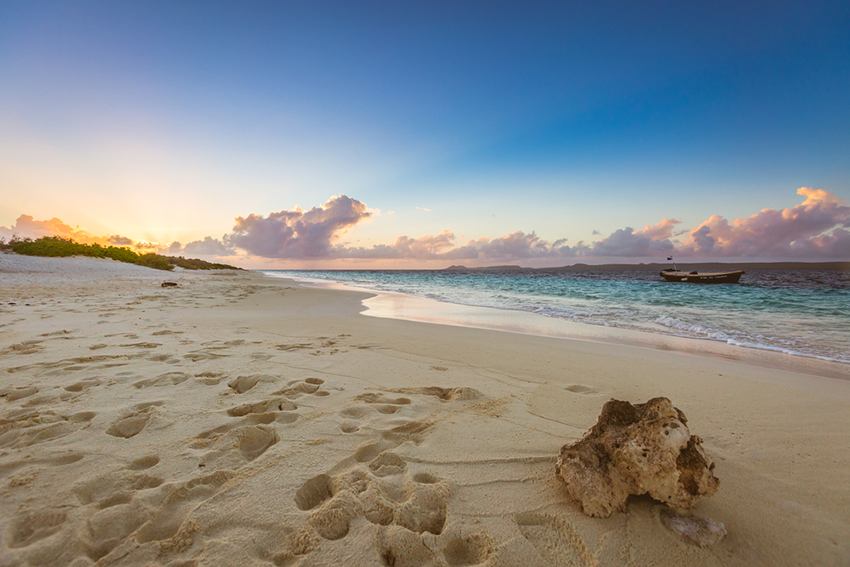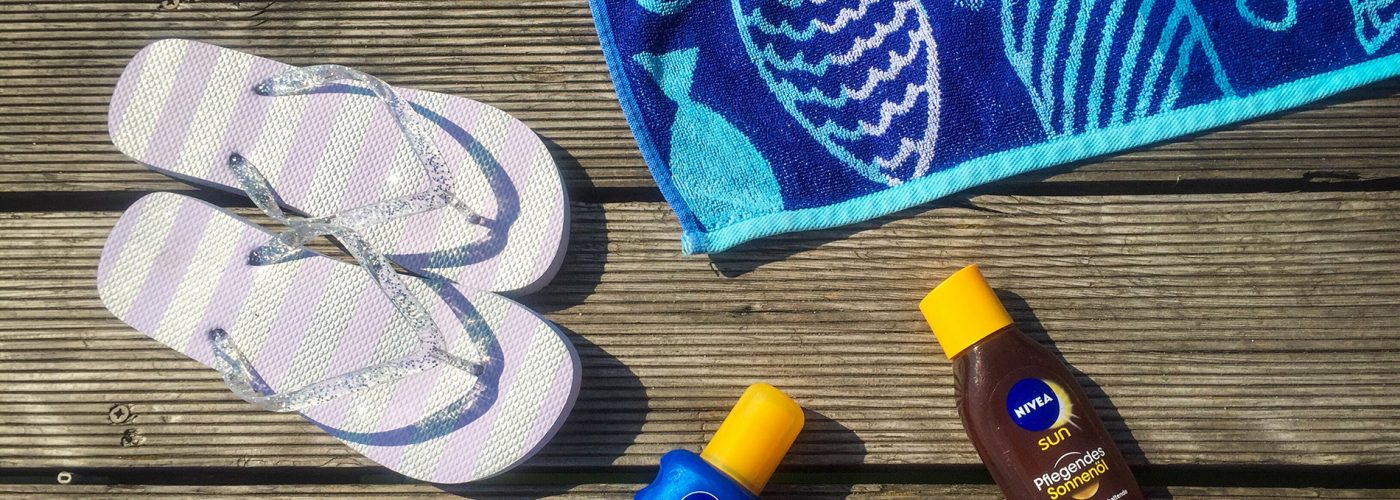Think the plastic straws you gave up sipping from are bad for our oceans? It’s time to consider the same about the sunscreen you use. Non-biodegradable sunscreens that contain harsh chemicals like oxybenzone have been proven to be toxic to coral reefs and other sea life. But travelers haven’t been as quick to widely abandon them for a natural alternative—so now some destinations are enacting sunscreen bans themselves.
Here are some of the most popular destinations that have banned non-biodegradable sunscreens, and how you can switch to a responsible alternative.
U.S. Virgin Islands

The U.S. Virgin Islands recently announced a ban on chemical sunscreens that are harmful to coral reefs, outlawing all imports and sales of sunscreens containing oxybenzone and octinoxate. The bill was signed into law in July 2019, and its terms will go into effect in March 2020.
Hawaii

The reef-rich state of Hawaii voted to ban the sale of sunscreens that contain the reef-damaging chemicals oxybenzone and octinoxate beginning in 2021. Experts have said the move is an effort to put pressure on sunscreen manufacturers to better label and produce natural sunscreens that use equally effective zinc oxide, which doesn’t harm reefs.
“In my lifetime, our planet has lost about half its coral reefs. We’ve got to take action to make sure we can protect the other half as best we can because we know that time is against us,” said Hawaii Representative Chris Lee. The ban doesn’t include cosmetic products like SPF makeup, or sunscreens prescribed by a doctor for medical reasons.
Key West, Florida

Key West, Florida—the home of the largest coral reef in the continental United States—recently followed Hawaii in enacting a non-biodegradable sunscreen ban on its businesses. Starting in 2021, no stores in Key West can carry sunscreens that contain the reef-damaging chemicals.
Key West leaders have said they hope the move will spread awareness about the issue and encourage travelers to buy natural sunscreens that work just as well. “There are thousands of sunscreens out there, and we have one reef,” Key West Mayor Teri Johnston said of the move. “And we have an opportunity to do one small thing to protect that. I believe it’s our obligation.”
Bonaire

The Caribbean island of Bonaire unanimously voted to ban the sale of reef-killing sunscreens in its stores by 2021. Scientists studying the effects of oxybenzone and octinoxate on reefs have conducted research in the Caribbean and said “about 90 percent of the reefs in the Caribbean have disappeared since 1980.”
Palau

But it’s not just the U.S. and Caribbean banning harsh sunscreens—parts of the Pacific are starting to follow suit. The archipelago nation of Palau is set to become the first country to enact a sunscreen ban, which will take effect in 2020. Palau lawmakers have said businesses could be fined up to $1,000 for selling non-biodegradable sunscreens.
“The power to confiscate sunscreens should be enough to deter their non-commercial use, and these provisions walk a smart balance between educating tourists and scaring them away,” Palau President Tommy Remengesau said of the change.
Mexican Vacation Spots
While it’s not technically banned here, popular vacation spots in Mexico are some of the most likely places for Americans to be asked not to use their harsh sunscreen. Popular cenote swimming holes in the Riviera Maya that are home to copious animal life typically ask that visitors only use natural sunscreens. Ecotourism preserves and natural water parks like Xel Ha, Xcaret Park, Garrafon Natural Reef Park, and similar spots in Cozumel and Playa del Carmen are also asking visitors to use only natural sunscreens.
Tip: Once you’re there, resorts and shops can (and will) charge a pretty penny for natural sunscreens. Stock up before you go to avoid the price gouge, and order online to ensure you get the best price. Avoid all aerosol sunscreens (spritzing sprays are fine), and check the ingredients list yourself to make sure oxybenzone and octinoxate aren’t listed; not all sunscreens marketed as “natural” are actually reef safe. Truly natural sunscreens typically list zinc oxide or titanium dioxide as an active ingredient.
More from SmarterTravel:
- 7 Bucket-List-Worthy Ways to Experience Ecotourism in Costa Rica
- 11 Endangered Bucket List Destinations and How to Visit Them Properly
- 15 Weird Things to Buy on Amazon (That Are Actually Perfect for Travel)
SmarterTravel’s Shannon McMahon writes about all things travel. Follow her on Instagram @shanmcmahon.
We hand-pick everything we recommend and select items through testing and reviews. Some products are sent to us free of charge with no incentive to offer a favorable review. We offer our unbiased opinions and do not accept compensation to review products. All items are in stock and prices are accurate at the time of publication. If you buy something through our links, we may earn a commission.
Related
Top Fares From
Today's Top Travel Deals
Brought to you by ShermansTravel
Peru: 8-Night Trip, Incl. Machu Picchu...
Great Value Vacations
 vacation
$2083+
vacation
$2083+
15-Night Transatlantic Cruise from New York...
Norwegian Cruise Line
 cruise
$928+
cruise
$928+
Shop and Save with Country Inns...
Patricia Magaña
 Hotel & Lodging Deals
Hotel & Lodging Deals





